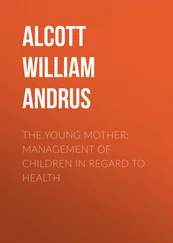By adopting Zimmerman's rule, we shall, as I have already observed, gain time for reflection, than which nothing more is needed. For if the cause of anger be a report, for example, of injury done to us by an absent person, either in words or deeds, how do we know the report is true? Or it may be only partly true; and how do we know, till we consider the matter well, whether it is worth our anger at all? Or if at all, perhaps it deserves but a little of it. It may be, too, that the person who said or did the thing reported, did it by mistake, or is already sorry for it. At all events, nothing can be gained by haste; much may be by delay.
If a passionate person give you ill language, you ought rather to pity than be angry with him, for anger is a species of disease. And to correct one evil, will you make another? If his being angry is an evil, will it mend the matter to make another evil, by indulging in passion yourself? Will it cure his disease, to throw yourself into the same distemper? But if not, then how foolish is it to indulge improper feelings at all!
On the same principles, and for the same reasons, you should avoid returning railing for railing; or reviling for reproach. It only kindles the more heat. Besides, you will often find silence, or at least very gentle words, as in the case of the Quaker just mentioned, the best return for reproaches which could be devised. I say the best 'return;' but I would not be understood as justifying any species of revenge . The kind of return here spoken of is precisely that treatment which will be most likely to cure the distemper in the other, by making him see, and be sorry for, his passion.
If the views taken in this section be true, it is easy to see the consummate folly of all violence, whether between individuals or collective bodies, whether it be by striking , duelling , or war . For if an individual or a nation has done wrong, will it annihilate that wrong to counteract it by another wrong? Is it not obvious that it only makes two evils, where but one existed before? And can two wrongs ever make one right action? Which is the most rational, when the choice is in our power, to add to one existing evil, another of similar or greater magnitude; or to keep quiet, and let the world have but one cup of misery instead of two?
Besides, the language of Scripture is every where full and decided on this point. 'Recompense to no man evil for evil,' and 'wo to him by whom the offence cometh,' though found but once or twice in just so many words, are in fact, some of the more prominent doctrines of the New Testament; and I very much doubt whether you can read many pages, in succession, in any part of the bible, without finding this great principle enforced. The daily example of the Saviour, and the apostles and early Christians, is a full confirmation of it, in practice.
CHAPTER II.
On the Management of Business
Section I. On commencing Business
Young men are usually in haste to commence business for themselves. This is an evil, and one which appears to me to be increasing. Let me caution my readers to be on their guard against it.
The evils of running in debt will be adverted to elsewhere. I mention the subject in this place, because the earlier you commence business, the greater the necessity of resorting to credit. You may, indeed, in some employments, begin on a very small scale; but this is attended with serious disadvantages, especially at the present day, when you must meet with so much competition. Perhaps a few may be furnished with capital by their friends, or by inheritance. In the latter case they may as well use their money, if they receive it; but I have already endeavored to show that it is generally for the interest of young men to rely upon their own exertions. It is extremely difficult for a person who has ever relied on others, to act with the same energy as those who have been thrown upon their own resources. 4 4 This fact, so obvious to every student of human nature, has sometimes given rise to an opinion that orphans make their way best in the world. So far as the business of making money is concerned, I am not sure but it is so.
Конец ознакомительного фрагмента.
Текст предоставлен ООО «ЛитРес».
Прочитайте эту книгу целиком, на ЛитРес.
Безопасно оплатить книгу можно банковской картой Visa, MasterCard, Maestro, со счета мобильного телефона, с платежного терминала, в салоне МТС или Связной, через PayPal, WebMoney, Яндекс.Деньги, QIWI Кошелек, бонусными картами или другим удобным Вам способом.
A teacher, who has been pleased to say much in behalf of this work, and to do much to extend its circulation, in a late letter, very modestly, but properly makes the following inquiry; 'Has not Dr. Franklin's precept, time is money , made many misers? Is it not used without sufficient qualification?'
There is no good thing, nor any good advice, but what may be abused, if used or taken without qualification . There may be misers in regard to time, as well as money; and no one can become miserly in the one respect without soon becoming so in the other. He who cannot or rather will not give any portion of his time to promote the happiness of those around him, in the various ways of doing good, which perpetually offer, lest it should take from his means of earning property, is as much to be pitied as he who hoards all his dollars and cents. Still it is true that youth should husband well their time, and avoid wasting either that or their money.
Dr. Franklin, in view of the latter fact, wrote a humorous Essay, at Paris, in which he labored hard to show the people of that luxurious and dissipated city, that the sun gives light as soon as it rises.
I have occasionally seen four or five persons in constant employ, solely to supply the wants of a family of the same number, whose health, collectively , required an amount of physical labor adequate to their own wants.
This fact, so obvious to every student of human nature, has sometimes given rise to an opinion that orphans make their way best in the world. So far as the business of making money is concerned, I am not sure but it is so.












